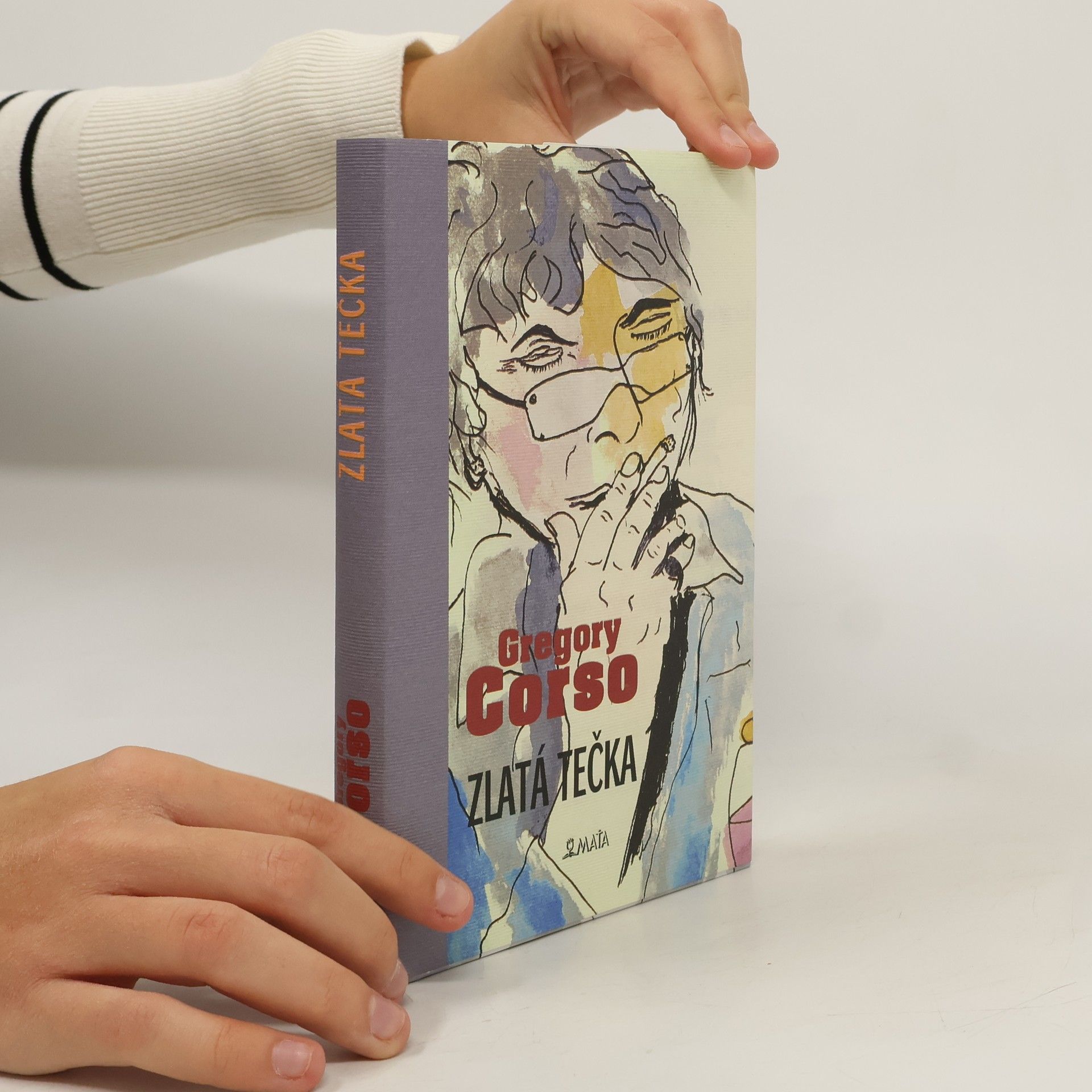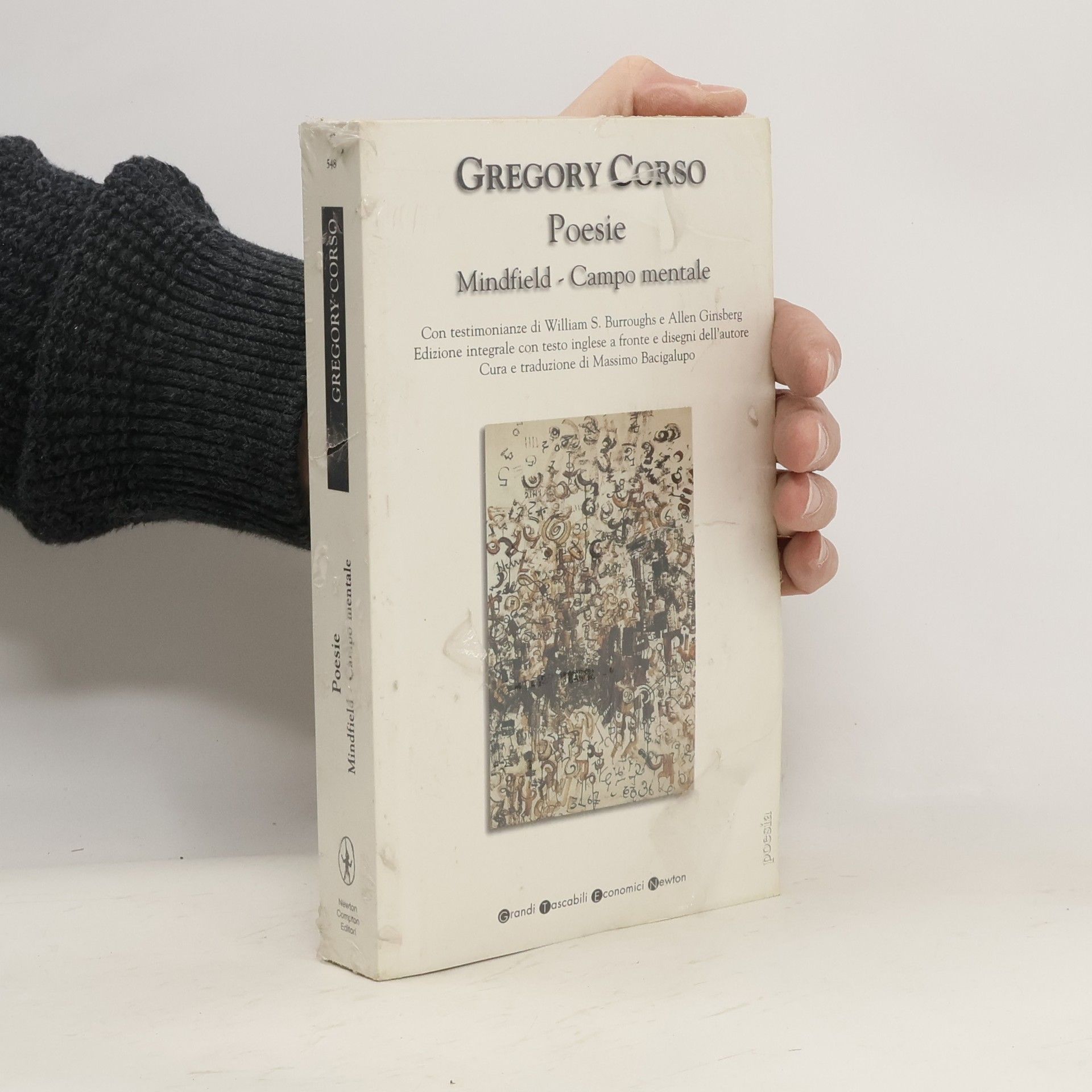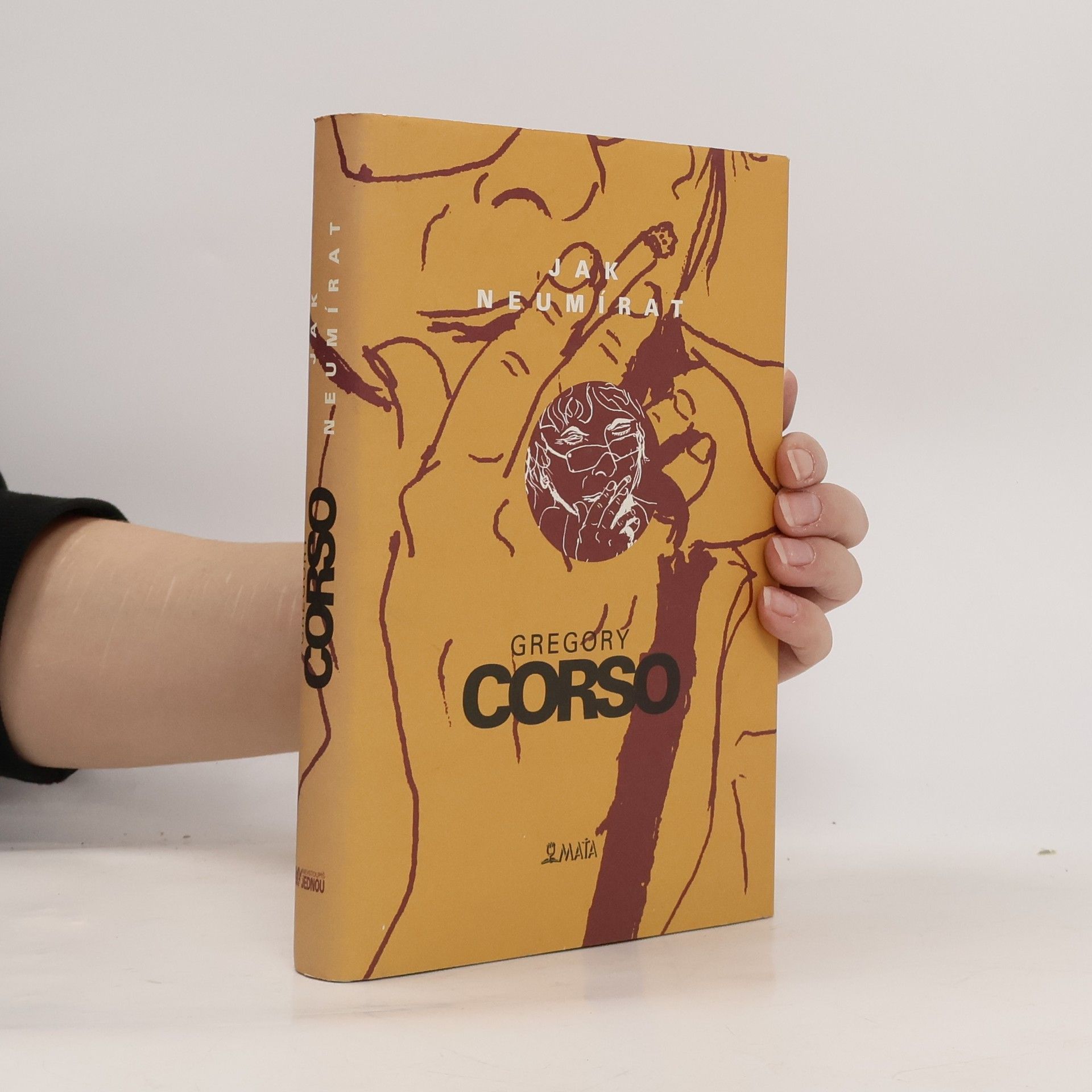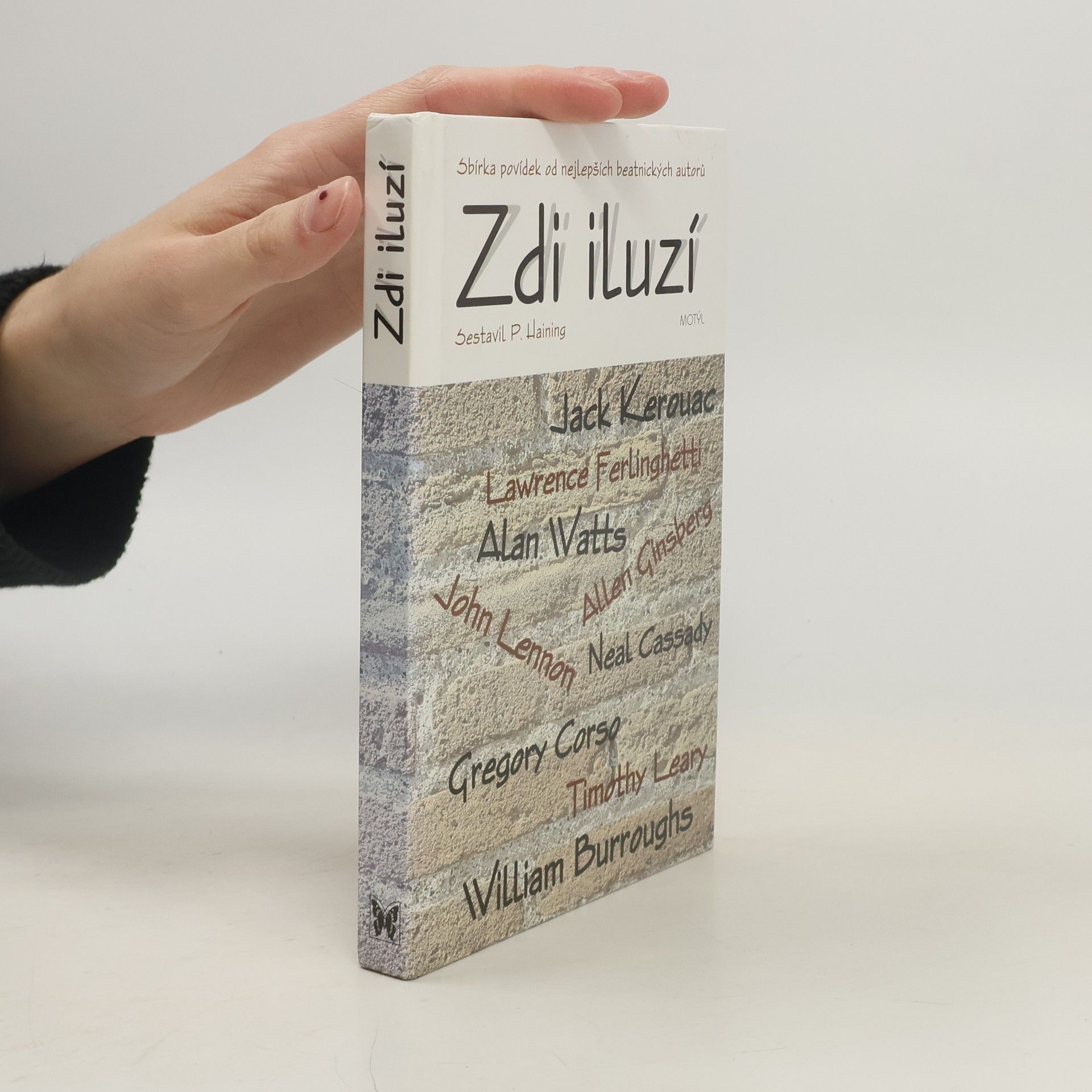Gregory Corso Book order (chronological)


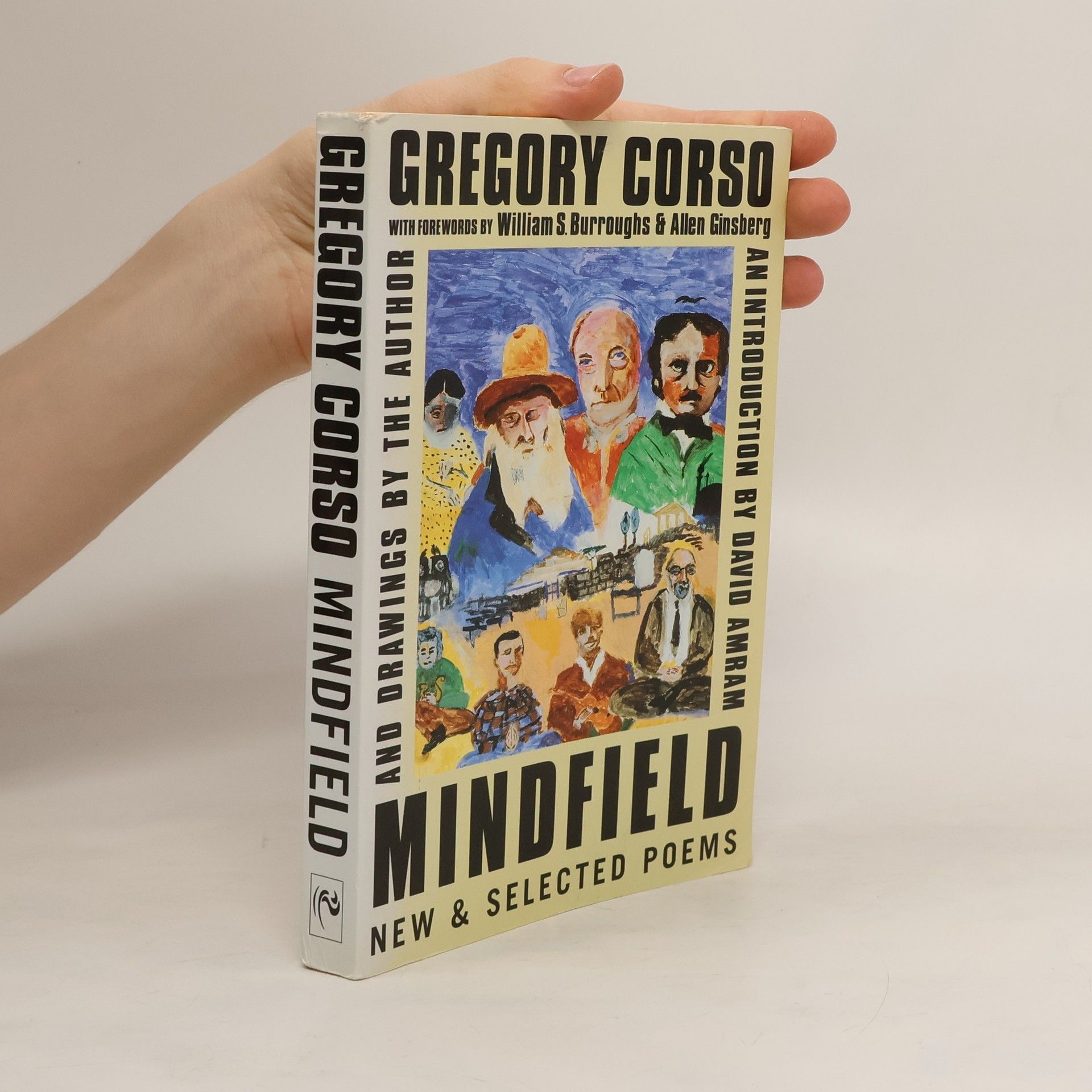
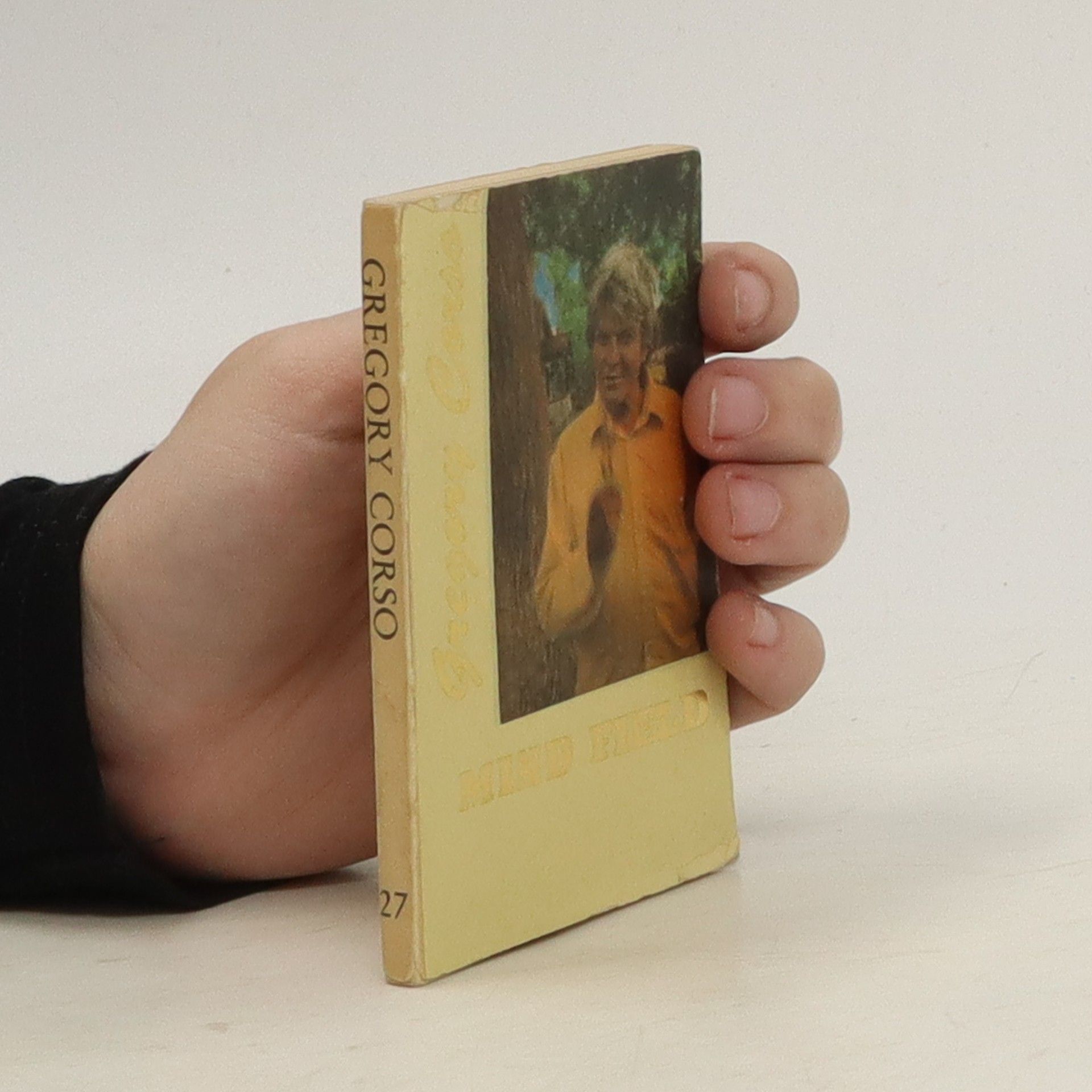



The Golden Dot
- 182 pages
- 7 hours of reading
Poesie: Mindfield - Campo mentale
Con testimonianze di William S. Burroughs e Allen Ginsberg. Edizione integrale con testo inglese a fronte e disegni dell'autore. Cura e traduzione di Massimo Bacigalupo
- 525 pages
- 19 hours of reading
Gasoline
- 100 pages
- 4 hours of reading
Gregory Corso was born on March 26, 1930 in New York City. His first book of poetry was published by City Lights Press in 1955. schovat popis
Jak neumírat
- 292 pages
- 11 hours of reading
Obsáhlý výbor z poezie amerického básníka Gregoryho Corsa z období od poloviny šedesátých let do konce let osmdesátých. Vedle dříve publikovaných překladů Jana Zábrany obsahuje převážně básně česky dosud nevydané. Básníkovo oko je stále stejně bystré, jen jeho humor je o něco černější než dřív. S autorovými ilustracemi.
Republished with a new cover and a new introduction by David Amram, this publication includes forewords by two legendary Beat writers, William S. Burroughs and Allen Ginsberg.
American Express
- 162 pages
- 6 hours of reading
Alegorie života, nepřehledný svět postav, zájmů a pohnutek. Tajné plány, bomby, válka, člověk jako cíl. Seznamte se se systémem. Vítejte v American Express!
Tato kniha obsahuje krátké povídky a ukázky od amerických autorů, kteří reprezentují legendární beatnickou kulturu, jejímž centrem bylo San Francisco. Mezi hlavními autory najdeme Ferlinghettiho, Cassadyho, Kerouaca, Ginsberga a Corsoa, doplněné o další autory z Ameriky a Evropy. Výbor představuje literární díla dvaceti autorů spolu s úvodními informacemi o jejich životech a je zakončen esejem Aldouse Huxleyho o vlivu drog na uměleckou tvorbu. Povídky se zabývají tématy, která zkoumají neprozkoumané oblasti lidské mysli, odhalují bizarní vize a extrémní zážitky. Autoři se vydávají na cesty fantazie vyvolané halucinogeny, setkávají se s obrazy ráje i temnoty, smrti a sebezničení. Tato antologie je pro dnešního čtenáře ukázkou svobody tvorby psychedelické generace šedesátých let, která zanechala nesmazatelnou stopu v moderní literatuře. Obsahuje úryvky a povídky od autorů jako Neal Cassady, Jack Kerouac, William S. Burroughs, Allen Ginsberg a další, včetně esejů a rozhovorů, které reflektují jejich jedinečné pohledy na svět.
Mind Field
- 56 pages
- 2 hours of reading
Poems deal with mortality, the sea, music, writers, artists, travel, nature, dreams, and guilt.
A collection of poems by the renowned Beat poet, Gregory Corso.
